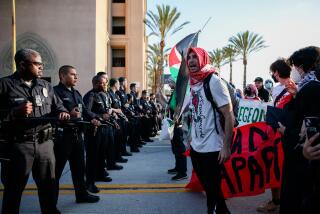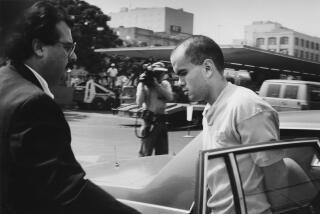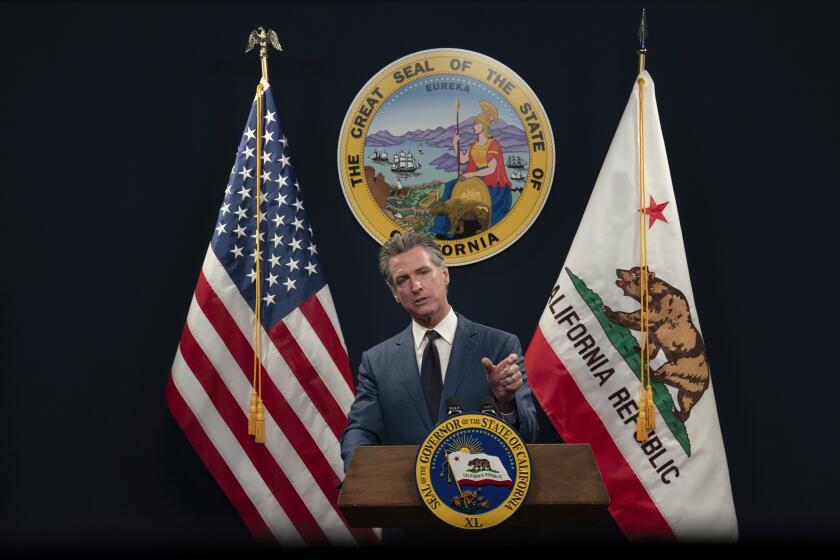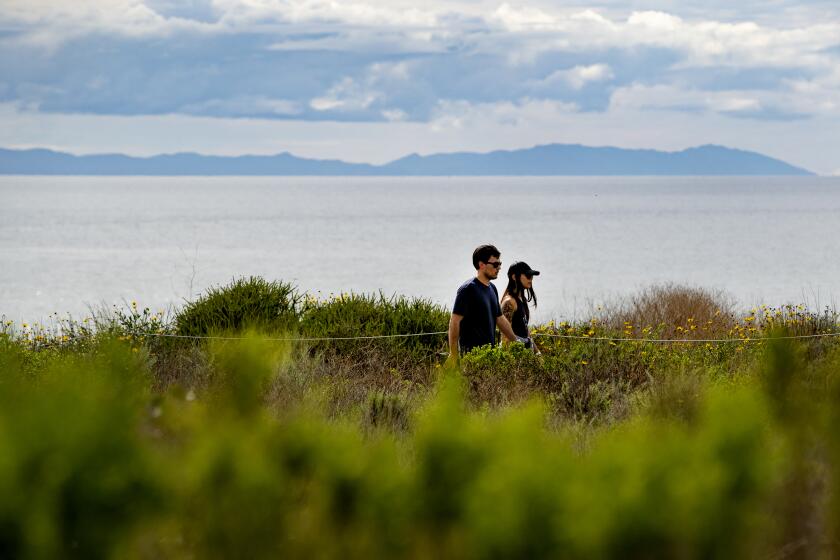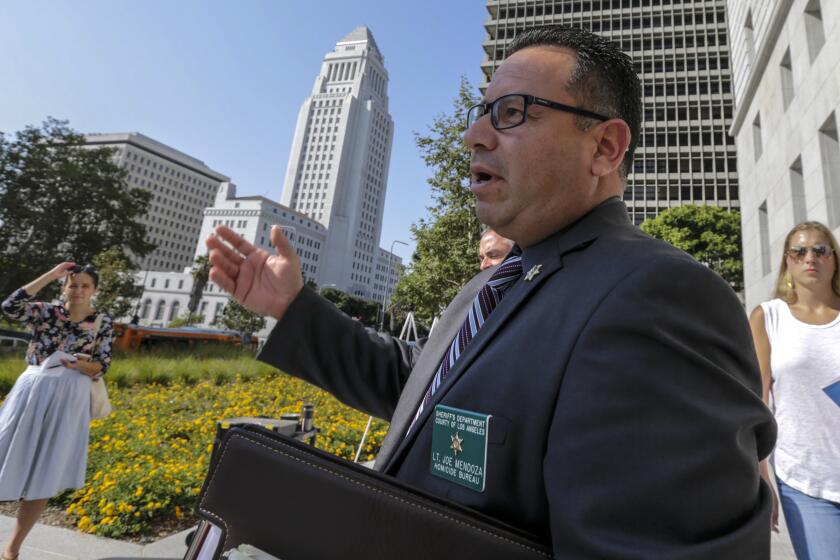C. Alexander, 89; Promoted Social Welfare
ObituariesChauncey Alexander, veteran executive director of the National Assn. of Social Workers who worked for better healthcare and other services for the poor, has died. He was 89.
Alexander, who lived in Huntington Beach, died Aug. 30 of pneumonia at an Orange County hospital, said his wife, Sally.
“Chauncey Alexander lived as a voice for the exploited, the misunderstood and for the disabled and disenfranchised of our community,” his friend and colleague, George Giacoppe, said in a statement.
A longtime activist trained as a psychiatric social worker, Alexander organized, lobbied and wrote articles, including commentary pieces for The Times, to prod state and national officials into providing better social services, including healthcare and mental health care.
As executive director of the National Assn. of Social Workers for 23 years, Alexander helped to establish professional standards and develop legislation. From its headquarters in New York City and later Washington, D.C., he organized the Legislative Action Network, a group of social workers, to lobby and provide information to legislators.
Paul Abels, professor emeritus of social work at Cal State Long Beach, where Alexander taught in his retirement years, said Tuesday that Alexander was also instrumental in setting up the licensing of social workers throughout the United States.
“He was a great teacher and very helpful to the faculty in understanding many issues related to social work,” Abels said. “It was like teaching alongside a former head of the American Medical Assn. if you are a doctor.”
Before and after he headed the national organization, Alexander performed administration work for a variety of care-giving organizations.
He spent 11 years as executive director of the Los Angeles County Heart Assn., after working with Dr. Sidney S. Sobin to help heart patients return to work. Alexander built the organization into a massive fundraising and educational operation involving 65,000 volunteers.
Earlier in his career, Alexander served as executive director of the Southern California Society for Mental Hygiene, organizing 11 chapters and working for an improved state mental health system.
In retirement, he organized the Health Care Coalition of Orange County to obtain better healthcare for the elderly, the poor and minorities. From 1986 until 1991, he also was chairman of the United Way Health Care Task Force, working to keep Orange County trauma centers open and expand prenatal care. In 1987, Alexander directed the publication of a study showing that one-fifth of Orange County residents could not pay for medical care.
Alexander, an active Democrat, served as a delegate to national presidential nominating conventions. He was on the Orange County Democratic Central Committee and worked in the Democratic Club of West Orange County. He actively campaigned for his wife in her unsuccessful 1996 bid to unseat Rep. Dana Rohrabacher (R-Huntington Beach).
Asked why he became a Democrat, Alexander told the Orange County Register in 1996 when he was a delegate to the Democratic National Convention:
“I was born into it, coming from a Southern family ... but mostly because the Democratic Party has been most important in working for education, healthcare, job protection, employment and human rights.”
After growing up in Glendale, Alexander earned a bachelor’s degree in psychology at UCLA in 1938 and many years later received a master’s degree in social work from USC.
During World War II, he was admitted to the Army after being rejected seven times for poor eyesight and served in the Philippines. After the war he worked as research and publications director for the Veterans Service Center in Los Angeles, where he developed a compendium of veterans’ benefits available across the country.
Alexander also worked as a counselor for Lockheed Corp. employees, a psychiatric social worker at Patton State Hospital in San Bernardino and a union organizer for the Federation of Architects, Engineers, Chemists and Technicians.
In addition to his wife of nearly 40 years, he is survived by four daughters, eight grandchildren and 14 great-grandchildren. His son, Gregory, died in 1997.
Services will be private.
More to Read
Start your day right
Sign up for Essential California for news, features and recommendations from the L.A. Times and beyond in your inbox six days a week.
You may occasionally receive promotional content from the Los Angeles Times.
